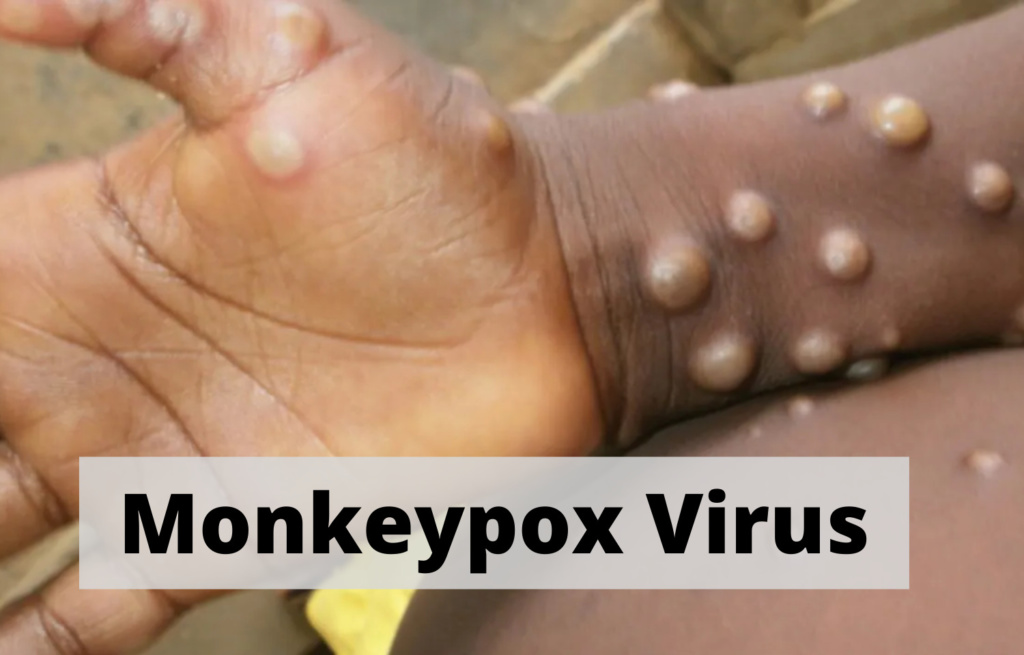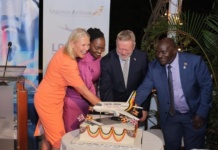
The UK Health Security Agency (UKHSA) has published new details about the outbreak of monkeypox in the UK in an epidemiological update with data up to 30 May.
The current outbreak is the first time that the virus has been passed from person to person in England where travel links to an endemic country have not been identified.
Of 190 confirmed cases identified from 6 to 30 May, 183 were in England, 4 were in Scotland, 2 were in Northern Ireland and 1 was in Wales.
In England, 86% of the cases are in London residents (132 out of 153) and only 2 were women. Most monkeypox cases have occurred in people aged 20 to 49 years old (87%). One hundred and eleven cases are known to be gay, bisexual, or other men who have sex with men (GBMSM).
Recent foreign travel to a number of different countries in Europe within 21 days of symptom onset has been reported by 34 confirmed cases (18%). Investigations to date have identified links to gay bars, saunas and the use of dating apps in the UK and abroad. Investigations continue but currently no single factor or exposure that links the cases has been identified.
UKHSA has worked rapidly with partners including the British Association of Sexual Health and HIV (BASHH), the British HIV Association, the Terrence Higgins Trust, Stonewall and dating App Grindr to communicate with sexual health services and the GBMSM community. The LGBT Consortium and Pride organisers across the UK have been encouraged to help share public health messaging over the next few weeks.
Dr Meera Chand, Director of Clinical and Emerging Infections at UKHSA, said: We are working to break chains of transmission, including by contact tracing and vaccination. We are grateful to everyone who has come forward for testing and it is extremely important that everyone continues to be aware of the symptoms and to seek advice if they have concerns.
We are reminding people to look out for new spots, ulcers or blisters on any part of their body. If anyone suspects they might have monkeypox, particularly if they have recently had a new sexual partner, they should limit their contact with others and contact NHS 111 or their local sexual health service as soon as possible, though please phone ahead before attending in person.
In London, outreach activity has included working with venue owners and event organisers.
Professor Kevin Fenton, London Regional Director for Public Health said: Monkeypox can affect anyone but we know that many of the most recent diagnoses are in gay, bisexual, and other men who have sex with men, many of whom live in, or have links to London. We’re reminding everyone of the symptoms of monkeypox, and especially gay and bisexual men in particular, to be especially aware and seek advice immediately by calling NHS111 or their local sexual health clinic if they have concerns.
As with any new disease outbreak, the risk of stigma and uncertainty is great. This is why we’re working side by side with the NHS, sexual health, voluntary and community sector organisations in London to share accurate information about monkeypox especially to people and groups at increased risk through representative voices.
UKHSA health protection teams are contacting people who may be high risk contacts of confirmed cases. These contacts will be risk assessed and if they remain well, will be advised to isolate at home for up to 21 days. In addition to isolating, UKHSA is offering the Imvanex vaccine to people who have had contact, or may have contact (for example health workers), with a confirmed case of monkeypox to reduce the risk of infection and severe illness.
Prior to this outbreak, there had been 7 cases of monkeypox in the UK between 2018 and 2021. Four of these were imported, 2 cases were in household contacts of confirmed cases, and 1 case was in a healthcare worker involved in the care of an imported case.
Kindly follow us on twitter:@AfricanVoice2










